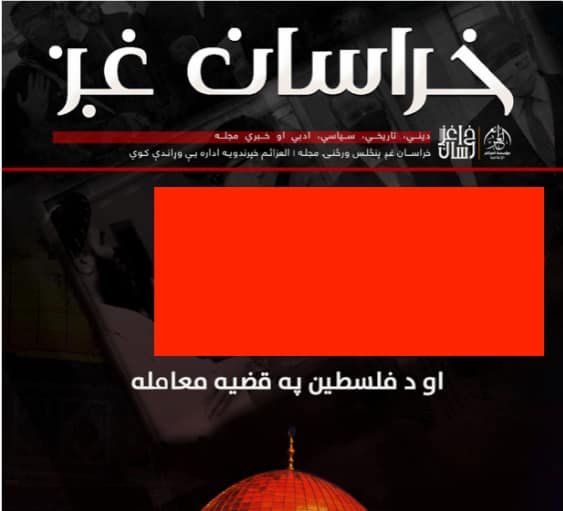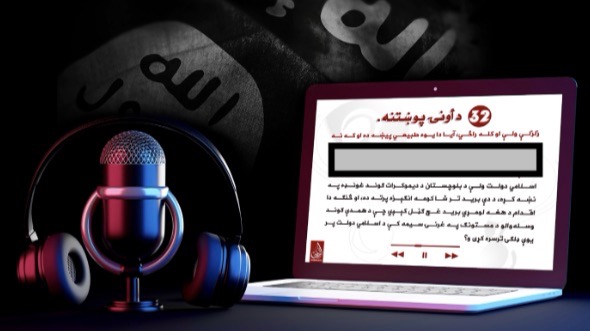ISKP publishes Pashto magazine after prolonged hiatus

Islamic State Khorasan Province’s (ISKP) media outlet, Al-Azaim Media, has published its flagship Pashto-language magazine Khurasan Ghag (Voice of Khorasan, or KG) following a hiatus of four and a half months. This issue primarily seeks to disillusion supporters of the Afghan Taliban and Pakistani Taliban with their respective leaderships, aiming to draw them toward ISKP through various allegations.
The 37th issue, consisting of 67 pages, was released on 3 July 2025 via Al-Azaim Media’s designated social media communication channels. The previous issue had been published on 13 February 2025. Since the magazine’s launch in May 2022, this marks the longest interval between issues. KG was initially a biweekly publication, later converted into a monthly one, though several issues have been released following delays of over two months.
The current issue contains seven articles, one of which is a translation from the May 2025 edition of ISKP’s Urdu magazine Nida-e-Khurasan (Voice of Khorasan).
One article severely criticizes the Pakistani Taliban, accusing them of being nationalist and religiously misguided due to their support for the Taliban. According to the article, like the Taliban, they adhere to religious beliefs that ISKP characterizes as deviant.
The issue features two prominent themes: challenging the Taliban’s religious narrative and portraying their state-building efforts as ineffective. These themes reflect ISKP’s core propaganda following August 2021, aimed at criticizing the Taliban in order to demoralize their supporters and redirect their allegiance toward ISKP. Consequently, recent diplomatic developments are presented not as political achievements of the Taliban but through various conspiracy theories.
These include Russia’s removal of the Taliban from its blacklist in April 2025 and the visit of a high-level U.S. delegation, led by Zalmay Khalilzad, to Afghanistan in March 2025 in connection with the release of a U.S. citizen detained by the Taliban. These events are not portrayed as political successes but are instead used to allege that the Taliban serve as proxies for Russia and the United States.
Similarly, a recent statement by Pakistan’s Minister of Defence Khawaja Asif—that the Taliban came to power in Afghanistan with the help of Pakistan—is cited as evidence of the Taliban being a Pakistani proxy. This is intended to provoke animosity against the Taliban among the Afghan populace, particularly their supporters. Conversely, emphasis is placed on ISKP being a group independent of Pakistani influence, allegedly engaged in a war for religious objectives. This constitutes the magazine’s editorial article.
The Oxus Watch highlights that this narrative has long been central to ISKP’s anti-Taliban discourse. However, presenting it as the main article in this issue is particularly significant in light of recent regional developments. It coincides with ISKP’s recent acknowledgment of its camps in Pakistan’s Balochistan province, which substantiates the Taliban’s longstanding allegations that ISKP acts as Pakistan’s proxy, launching attacks in Afghanistan from sanctuaries within Pakistan. Therefore, by reiterating the Taliban’s presence in Pakistan, the article seeks to depict the Taliban—not ISKP—as a proxy of the Pakistani state.



